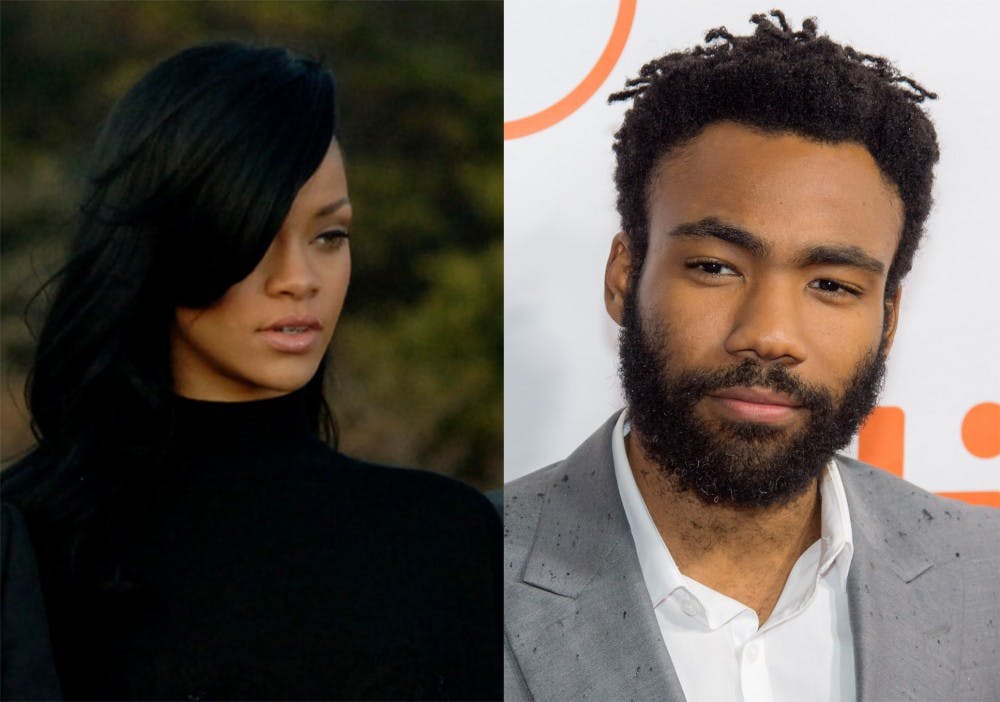Donald Glover and Rihanna in a musical film together, shot over the course of a few months in Cuba. What’s not to love?
Guava Island was released on Amazon Prime on April 13, but first appeared at Coachella two days earlier. The film was directed by Hiro Murai and written by Stephen Glover, Donald’s brother. Although now only available to Amazon Prime members, the first 18 hours of its release was open for non–subscribers to watch.
The film starts with an animated story of Kofi (Rihanna) and Deni (Glover), who grew up on Guava Island together. They eventually fall in love, as Deni plays his guitar outside of Kofi's window every night since they were young. The film then transitions into present day in live action. On Guava Island, Deni is a musical celebrity, praised by the locals. The story chronicles Deni’s preparation for a big musical festival for the whole town. However, conflict arises as the boss of the island’s biggest business opposes his festival, afraid that it will cause a disruption to society.
Guava Island incorporates renditions of Childish Gambino’s songs, from “This is America” to “Summertime Magic.” The movie feels like a modern fable, with beautiful backdrops and lively music throughout. Its message is an opposition to capitalism, which further enhances the messages in “This is America.” In an argument with his coworker, who wants to move to America, Deni explains, “America is a concept. Anywhere where in order to get rich you have to make someone else richer is America.”
Yet, the image presented of Guava Island shows a monopolistic economy that shouldn’t be strived for either. Everyone on the island works for one big company, rid of any opportunity and choice. The island is meant to act as a microcosm of America itself, but portrayed in the extreme.
The cinematography of Guava Island is comfortable and dreamy. The colors are artfully washed up and faded. Grainy textures envelop a myriad of scenes, giving the viewer an impression of watching the film through a special lens. This, in collaboration with the joyful music, makes Guava Island a treat to watch.
Meanwhile, Rihanna's performance comes naturally and is anything but subtle. At first appearing just as a side character to Deni, it soon becomes clear that she is the anchor of their relationship. Her presence is vibrant and loudly heard.
However, the plot of Guava Island feels underdeveloped, and the message falls short. On one hand, the focus is inherently on Deni’s ongoing crisis and his journey as an artist. This distracts from the shadow of capitalism in the film, which fails to shine through the storyline. In just 56 minutes, Guava Island fails to do it all: tell a mythical, musical tale with serious criticisms of America’s economic structure.
A creative cinematic composition presented by Donald Glover is certainly nothing to be upset about. Guava Island is beautiful and engaging to watch. However, by the end, the characters and plot fade away, leaving only a weak impression. The short film is no “This is America” in terms of message, but is by no means a complete flunk either.

